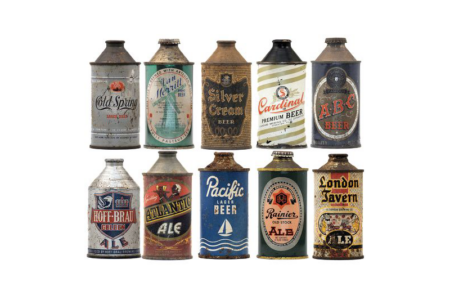The importance of integrity

Image: TOLAG
TOLAG’s Chris McKenzie examines the importance of integrity in the can making business
The question of supplier integrity is often a grey area as there are many levels to consider. Usually there is a great deal of trust in the suppliers’ sales or technical adviser – sometimes the trust is hidden behind a large corporate name – either can be deceiving. If we look at some well-known case histories, Nick Leeson, who served four years in prison for fraud after bankrupting the London-based Barings Bank in 1995, hid $1.4 billion in debt he had accumulated as a derivatives trader in Singapore. This was clearly evidence of trust on an individual level that went terribly wrong. On the other hand, when we view evidence of trust in corporations, it’s unfortunate that these have often been eroded by even the most prestigious names.
One of the most publicised case recently was the Apple ‘Battery Gate’ of December 2017. A Reddit user reported that a software update had reduced the performance of their iPhone, but that this had corrected itself when they replaced the battery. This post led to a lot of press coverage, with some commentators suggesting that Apple were trying to force users to upgrade by deliberately slowing devices as they aged. Tim Cook, CEO, issued a statement on the matter a week after the news broke, confirming that the software was designed to throttle performance, but claiming that the intent was only to prevent unexpected shutdowns, which could affect devices with older batteries.
Often when we look at our own industry and supplier trust, we hear the reply that the person or corporation is doing a great job. As I have visited plants over the last few decades and certainly over the past few years, I have noted that they were indeed doing a great job but not for the plant. They were however doing a great job for themselves or their employer. It’s important to remember and look inwards to verify this in your own mind that the majority of suppliers will sell you what will bring the best margin, kudos from their management or commission – that is their job and it only changed when competition is strong, and proof of benefit is needed to retain or gain that account. There are very few who will look at what you want or need, always looking for ways to benefit profit line or volume.
To be fair, there are some great and honest engineers, but often stifled by management. Corporations are no different, but the bigger they are, the more they are beholden to shareholders and thus the bottom line is all powerful.
It’s always best, where possible, to involve non-aligned auditors to check your systems, possible purchases or plants – it can save you hundreds of thousands of dollars in capital. More importantly, that’s millions of dollars in lost customers through downtime and poor-quality produced packaging.
The need for competition
Acquisitions over the past three decades have seen the elimination of competition by stealth, most evident in the number of suppliers in particular fields as we walk through the annual exhibitions in the packaging sector. Thankfully, there is indeed a resurgence in small companies starting to filter through as the loss of skill in the industry through attrition and retirement is attempted to be plugged by the highly skilled older engineers fighting back against industry losses.
The older engineer is passionate, resilient, fast thinking and knowledgeable, and should be used to bring the younger generation of can makers up to speed before this resource dies off. TOLAG has served and worked in the industrial field with a wide and varied diversity encompassing food and beverage in both steel and aluminium DWI, EOE, general line, aerospace, automotive, as well as ferrous and non-ferrous rolling and extrusion.
The following poignant story that we have all heard about the train engineer and sometimes boilermaker has struck a chord with us.
“A giant ship engine failed. The ship’s owners tried one expert after another, but none of them could figure but how to fix the engine.
Then they brought in an old man who had been fixing ships since he was a young. He carried a large bag of tools with him, and when he arrived, he immediately went to work. He inspected the engine very carefully, top to bottom.
Two of the ship’s owners were there, watching this man, hoping he would know what to do. After looking things over, the old man reached into his bag and pulled out a small hammer. He gently tapped something. Instantly, the engine lurched into life. He carefully put his hammer away. The engine was fixed!
A week later, the owners received a bill from the old man for ten thousand dollars.
“What?!” the owners exclaimed. “He hardly did anything!”
They wrote the old man a note saying, “Please send us an itemised invoice.
The man sent an invoice that read:
Tapping with a hammer………………….. $ 2.00
Knowing where to tap…………………….. $ 9,998.00”
Effort is important, but knowing where to make an effort makes all the difference…
- Chris McKenzie can be reached at [email protected]
This feature article is restricted to logged-in paid subscribers.
Login or subscribe now to view this exclusive content.



